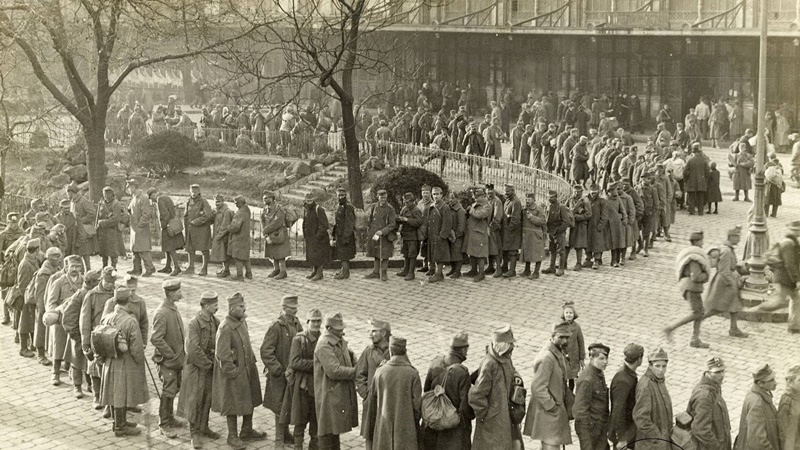The seminar focuses on fall and winter 1918, with participants engaging with great power, small state and specifically Hungarian scenarios, decisions, as well as post-facto interpretations of the past. The aim is to highlight ambiguities of the period, the instances of historical contingency, coupled with efforts by subsequent generations to impart meaning onto the past. These efforts re-interpreted events and life stories (individual and collective) to yield a meaningful narrative and enable moral judgement. In addition, the workshop, which will take place in English and Hungarian, raises the question of what innovative questions should be formulated for future research, helping scholars to move beyond issues of historical responsibility, identifying the guilty and the saviors of the collectivity, enabling research to escape the interpretive field of canonizing or critiquing mythologies embedded in society.
12 October, 2018, HAS Research Building, 4 Tóth Kálmán St, Conference Room of the Institute of History
Program and participants
10am-12pm
National and Great Power Visions for the “New Europe”
Balázs Ablonczy (Chair, HAS), László Szarka (Co-convenor, HAS), Tibor Balla (Museum of Military History), Árpád Hornyák (HAS, Pécs University), Csaba Katona (HAS), Miklós Zeidler (ELTE)
12pm-1pm
Lunch (individually, at the cafeteria of the HAS Research Building)
1pm-3pm
Post-imperial scenarios and memorialization in the Danubian space
Attila Pók (Chair, HAS), Gergely Romsics (Co-convenor, HAS, ELTE), Péter Csunderlik (Institute of Political History), Pál Hatos (Kaposvár University), Maciej Janowski (Polish Academy of Sciences), Heidemarie Uhl (Austrian Academy of Sciences)
3pm-4pm
Closing discussion and short reception
 download file
download file 





